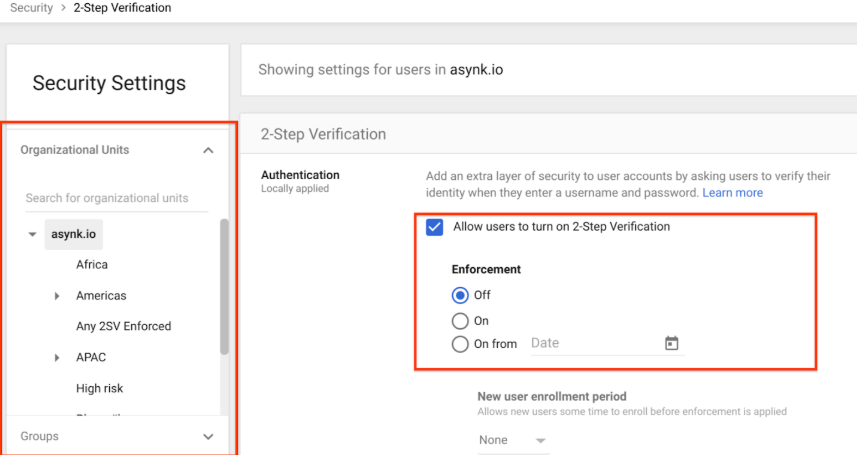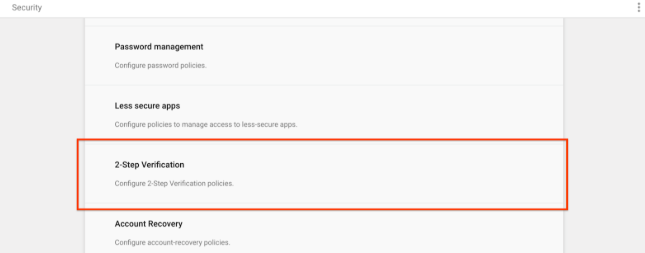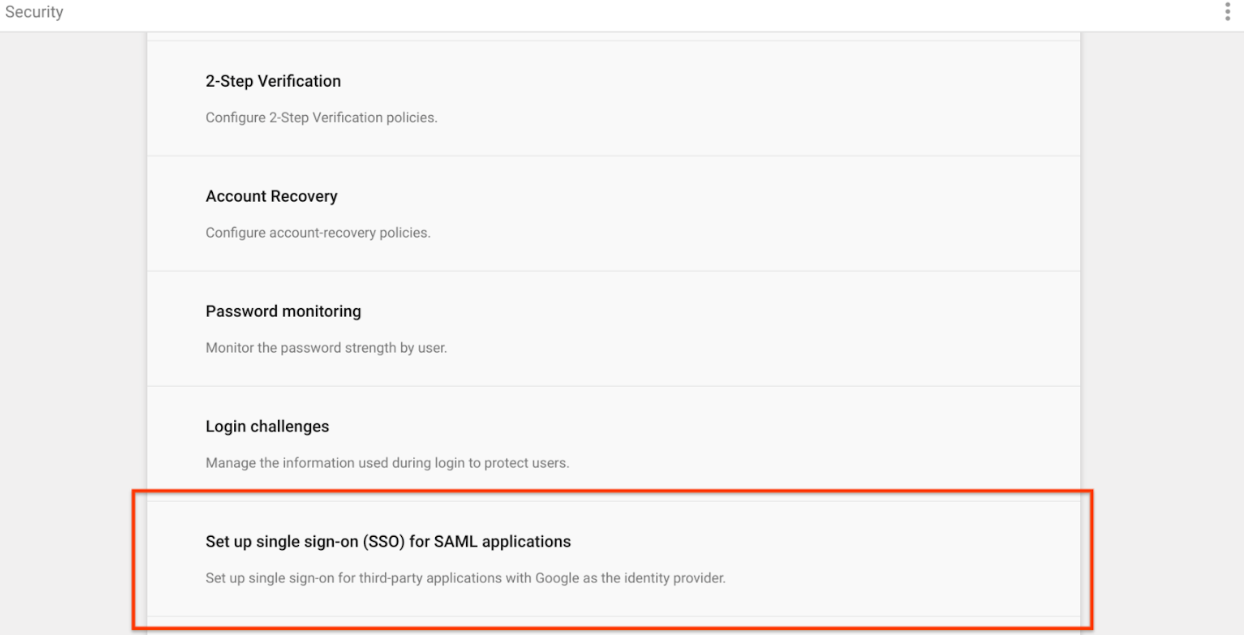G Suite has new updates as of May 20th 2020.
The Following has been updated:
- Two updates for Admin Console for 2-Step Verification and SSO for SAML Controls.
- The Format of secondary Calendar and resources has been alternated.
- Advanced user setting to hide or show Google Meet in Gmail.
- Disseminate Certificates for mobile devices via MDM.
2-Step Verification (2SV) controls for Admin console.
A “2-Step Verification settings” section of the security page where you can turn 2SV on or off and control other related settings.
- Mappings - Admin Console → Security → 2-Step Verification.

- Mappings - Admin Console → Security → 2-Step Verification.
The capability for 2SV enrollment to shift between on and off for each organizational unit (OU). In the previous version, you were only capable of turning it on or off for the whole domain. Once turned on, 2SV policies have been further added and can be adjusted.

Preventing admins from accidentally locking themselves out of an account with new interfaces by enforcing 2SV without being enrolled in 2sv.
Updated and streamlined interface.
New section for Single Sign-On (SSO) settings for SAML Applications.
- Settings that apply to all SAML applications when Google is the Identity Provider (IdP) are now in their own section in Security settings
- Mapping - Admin Console → Security → Set up single sign-on (SSO) for SAML applications.

- Mapping - Admin Console → Security → Set up single sign-on (SSO) for SAML applications.

- The functionality doesn’t change but you will find a more streamlined experience for managing certificates and download IdP metadata.
How to get started…
- Admins: The new per-OU 2SV enrollment feature will be set to ON at the organization level (root OU) if and only if you had allowed 2SV enrollment for your organization before this launch so that there is no change in behavior for your organization. After the launch, you can now change 2SV enrollment at an OU level. You can also use exception groups for 2SV enrollment settings, similar to how 2SV enforcement settings support them. Visit the Help Center to learn more about how to deploy 2-Step Verification for your organization.
- End users: There is no end user impact for the feature.
Roll-out pace
- Rapid and Scheduled Release domains: Gradual roll-out (up to 15 days for feature visibility) starting on May 20, 2020
- Available to all G Suite and Cloud Identity customers
Changes of formatting of secondary Calendar and Resources
Effective by June 3, 2020 the calendar IDs associated with newly created secondary calendars and resources will have a new format. In the new format, your G Suite account’s domain name will not be included in secondary or resource calendar IDs.
- The existing email format for calendar resources is the following:__ {customer domain}{random characters}@resource.calendar.google.com_
- The format for secondary calendars is the following: {customer domain}_{random characters}@group.calendar.google.com
- The new format for newly created calendar resources will be the following: {random characters}@resource.calendar.google.com
- The new format for newly created secondary calendars will be the following: {random characters}@group.calendar.google.com
This change is only cosmetic and no Google Calendar functionality is affected because of it. However, if you maintain a script that parses/extracts the domain name from Resource/Secondary Calendar IDs, please update your scripts to ensure they continue to work following this change. All available for G Suite customers.
Meet Call in Gmail settings to hide or show for Google Meet
G Suite previously announced the ability to start or join a Meet Call in Gmail. G Suite is now giving users the option to hide those features.

Admins: Admins can disable Meet for their organization by turning off video calling in the Admin Console. This launch adds a user-level setting.
End users: Follow the steps in the Help Center to hide or show Meet in Gmail for your account.
Roll-out pace
- Rapid and Scheduled Release domains: Gradual rollout (up to 15 days for feature visibility) starting on May 19, 2020
- Available to all G Suite customers
Disseminate Certificates for mobile devices via MDM.
The Changes
- Issuing digital certificates to iOS and Android devices for secure access, even when not connected to the corporate network
- Makes Mobile devices with identification, authentication, and access to G Suite and other corporate resources simple and fluid.
- This is available to G Suite Enterprise, G Suite Enterprise for Education, and Cloud Identity Premium customers using Google Endpoint Management via an on-premises connector.
- Impacts all Admins.
The Importance
- Certificates are an important way to identify and authenticate mobile devices so they can securely access corporate resources. These resources can include G Suite, enterprise WiFi hotspots, and more.
- Some customers include a requirement for devices to be on-premise and protected by a firewall to distribute device certificates. As some users can no longer access corporate locations and networks, customers need a way to issue these certificates remotely.
- By providing this feature, we are helping these customers keep their employees connected and productive even when they’re not in the office.
- This Feature is available now.
Availability
- G Suite Enterprise, G Suite Enterprise for Education, and Cloud Identity Premium customers
- Not available to G Suite Basic, G Suite Business, G Suite for Education, G Suite for Nonprofits, and Cloud Identity Free customers
G Suite Consulting with Iron Cove Solutions
- We can connect your historical data and move to the G Suite email server.
- We will migrate, calendar, contact, and email to the new platform.
- We will take care of all data, DNS changes, and user set up.
- A complete migration package all for one single fixed price.
- Contact us for Consulting and Migrate today.



